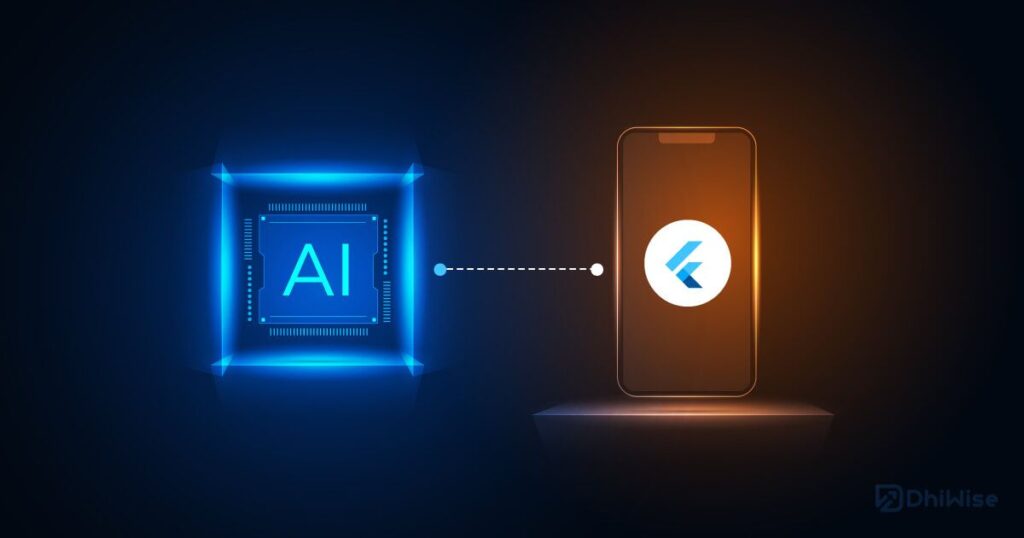Blog

AI in Mobile Apps: Future UX and Applications in 2024
Innovative startups face increasing pressure to integrate AI into their offerings. Investors, angels, and grants demand innovation, and without AI, staying competitive is nearly impossible. So, where can artificial intelligence or machine learning be applied in mobile apps? This article explores several use cases for AI in mobile applications and furthermore article shows you new SDKs for mobile apps.
Modern UX of Mobile Apps with AI: A Glimpse into the Future
The concept of AI-enhanced user experiences is rapidly becoming a reality. Imagine a scenario where your mobile device’s assistant, like Siri or Google Assistant, handles tasks seamlessly:
• User(Eryk): “Hey Siri, log my lunch.”
• Siri: “Sure, what did you have?”
• User(Eryk): “I had a chicken salad.”
• Siri: “Got it. Chicken salad logged with an estimated 350 calories. Would you like to add anything else?”
• User(Eryk): “No thank you.”
• Siri: “Bon appétit, Eryk.”
What once seemed futuristic is now on the horizon. By the end of 2024, we can expect AI to revolutionize UX systems for desktops, web, and mobile devices. Google and Apple are already developing in-device AI models, known as Google AI and Apple Intelligence, respectively. These hybrid offline and online models will offer various features, such as:
• Writing Tools: System-wide tools for rewriting, proofreading, and summarizing text.
• Image Playground: Easy creation of playful images directly on the device.
• Genmoji: Custom emojis represented as inline images.
• Siri with App Intents: Enhanced Siri capabilities for deeper integration and more natural interaction, making app actions more discoverable across the system.
These advancements promise to transform communication, creativity, and efficiency for users and developers alike.
For us the most important is: Siri with App Intents.
The Future of Mobile UX with Siri and App Intents
Imagine waking up to a world where your mobile app experience feels almost magical. You start your day by saying, “Hey Siri, log my breakfast.” Instantly, Siri responds, “Sure, can you take a photo or describe it?” You snap a quick picture of your avocado toast, and Siri accurately logs the meal, estimating its calories and nutrients.
Next, you ask about your friends’ activities, and Siri provides a friendly summary of the latest updates and important news, thanks to sophisticated recommendation systems of each application (Instagram, Tik-Tok, Youtube, Facebook, X<Twitter>). Personalized interactions become the norm:
• Custom Commands: “Hey Siri, start my morning workout,” launches your fitness app and tracks your progress.
• Contextual Awareness: “Hey Siri, what’s for lunch?” Siri, knowing your dietary habits, suggests a chicken salad.
• Enhanced Integration: “Hey Siri, book a ride to the airport,” seamlessly connects with your favorite ride-hailing service.
• Streamlined Automation: “Hey Siri, remind me to call mom at 6 PM,” adds the task to your calendar and can even send messages in your mother tounge.
As AI evolves, these interactions will become even more natural and tailored to your needs, offering an almost human-like experience.

Technical Integration: Apple Intelligence and Google AI with Flutter
Currently, official libraries – Apple Intelligence for Flutter or Google AI for Flutter haven’t been released yet, but at Codigee, we are working on it. Both iOS and Android have official support for Google AI and Apple Intelligence, requiring platform-specific code. In Flutter, we have direct access to both through “bridges to natives.” This means that while each platform’s unique AI features require tailored code, an abstract layer in Flutter can control both systems.
Both Siri and Google Assistant offer:
• Personalization: Custom voice commands tailored to user routines.
• Contextual Responses: Adaptive responses based on user context.
• Task Automation: Facilitation of routine task automation.
• App Integration: Deep integration between apps and voice assistants.
Sources:
https://developer.apple.com/documentation/appintents/integrating-your-app-with-siri-and-apple-intelligence
https://developer.android.com/ai/google-ai-client-sdk
Conclusion: Is AI in Apps Worth It?
Integrating AI into mobile apps is not just worthwhile but essential. The competition is already moving in this direction, and planning for AI integration from the start will give you a competitive edge. As AI technology continues to evolve, it will offer a seamless, almost human-like experience in mobile app usage. Embracing this future now will ensure your app stays relevant and innovative.
Get latest insights, ideas and inspiration
Take your app development and management further with Codigee
Let's make something together.
At Codigee, we value transparency, efficiency, and simplicity. No overengineering. No wasted time.
Just straight-up execution.
We are obsessed.
Every billion-dollar company started with one decision, one step, one iteration. The key? Taking action and executing fast.

